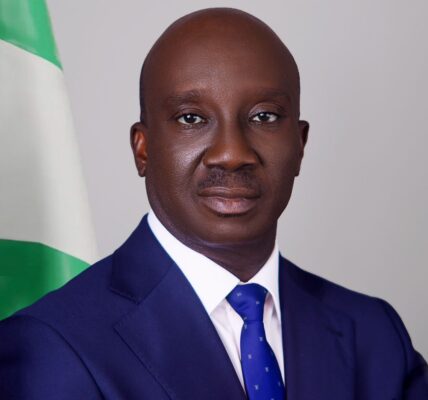By Fred Itua
In the heart of Nigeria’s South South region lies a state uniquely positioned as a transit and gateway corridor—Edo State. For decades, its strategic location made it a pivotal hub for movement across the country, linking the South East, South South, South West, and even Northern Nigeria. It was this geographical advantage that inspired visionary leaders of the past to establish an indigenous, state-owned transport network to serve both the people and the nation. One of such visionary projects was the creation of Edo Line, an iconic symbol of mobility, enterprise, and progress, birthed by the late Dr. Samuel Ogbemudia.
Edo Line was more than just a transportation firm—it was a symbol of Edo pride, a public utility that once stood tall among transport networks in Nigeria. From the 1980s through the early 2000s, the company offered efficient inter-state services and provided hundreds of jobs for Edo youths. However, by 2010, this once-reliable system began to crumble under the weight of neglect, poor maintenance, and policy inconsistencies. Successive administrations tiptoed around its revival without meaningful commitment.
In 2017, the administration of former Governor Godwin Obaseki finally closed that chapter by shutting down Edo Line indefinitely. The directive came with the relocation of remaining staff to the Ministry of Transport, and the company’s facilities were abandoned. Buses and courier units were left to rot; offices became dilapidated shells of their former selves. With a mounting debt of over N1.5 billion, the company seemed destined for liquidation rather than rehabilitation. Edo Line joined the list of public utilities choked by the dust of time and government inaction.
But history, as it is often said, is kind to leaders who confront problems head-on. In just a few weeks after his inauguration, Governor Monday Okpebholo demonstrated that leadership is not just about grand promises but timely action. Accompanied by his Deputy, Hon. Dennis Idahosa, the Governor visited the ruins of Edo Line along Mission Road, Benin City. What he met was a graveyard of lost dreams—but he saw more than decay; he saw potentials.
By February 2025, a flurry of activity began: the Governor approved the purchase and commissioning of over 100 new Toyota Hiace buses—a fleet that signaled not only revival but modernization. Unlike previous efforts that were trapped in bureaucracy or lip service, this intervention was swift, strategic, and structured. The New Edo Line was reborn—not as a recycled version of its former self—but as a rejuvenated model ready to compete and serve.
Now, with operations set to begin on June 27, 2025, the once comatose Edo Line will roar back to life after 15 years of abandonment. For a state that sits at the crossroads of national commerce and travel, this is not just a return; it is a renaissance.
The implications of this revival go beyond intra-state travel. With the new fleet and improved infrastructure, the New Edo Line is poised to become the heartbeat of public transportation in Southern Nigeria. As a transit state, Edo serves travelers from Lagos heading to the East, from the North seeking access to the ports in the South South, and from neighboring states like Delta, Kogi, and Ondo.
This means more than movement—it means commerce. It means safer travel, job creation, digital ticketing systems, courier revival, and the resurgence of Edo’s logistical power. Moreover, this move aligns with regional integration plans within the Southern Governors’ Forum and opens up Edo for greater collaboration and investments in the transport and logistics sector.
The ripple effect? With increased mobility comes urban development, stronger inter-state business ties, and enhanced accessibility for rural communities who rely on efficient public transport for survival and economic activity.
That such a transformative initiative was accomplished within the first 100 days of Governor Okpebholo’s administration is not just commendable—it is historic. In a political climate where even basic infrastructure can take years of planning and politicking, this swift execution underscores the Governor’s hands-on leadership, sense of urgency, and love for the people.
In a time when cynicism about government action runs deep, the New Edo Line rebirth rekindles hope. It is proof that with the right leadership, public utilities can be resuscitated; that legacies can be preserved and modernized; and that the government can still work—fast and effectively—for the people.
The buses may be new, but what is truly new is the vision steering the wheels. The New Edo Line stands today as a testament to the power of political will, the relevance of Edo as a regional mobility hub, and the necessity of investing in infrastructure that moves people, goods, and ideas.
Governor Monday Okpebholo has done in 100 days what took others more than a decade to ignore. And as the engines of the New Edo Line hum back to life this June, Edo people—and indeed Nigerians—can be assured that this journey is not just about buses. It is about destination. It is about dignity. It is about a government in motion, driven by purpose.
Edo Oyeeeee!
Fred Itua is the Chief Press Secretary to Governor Monday Okpebholo of Edo State





